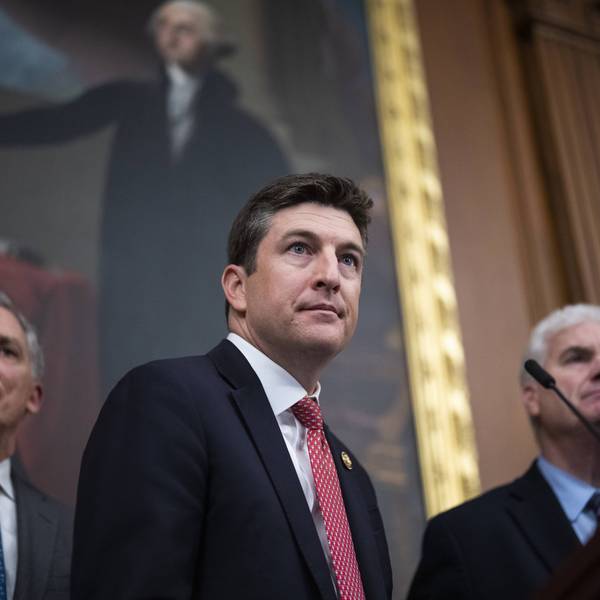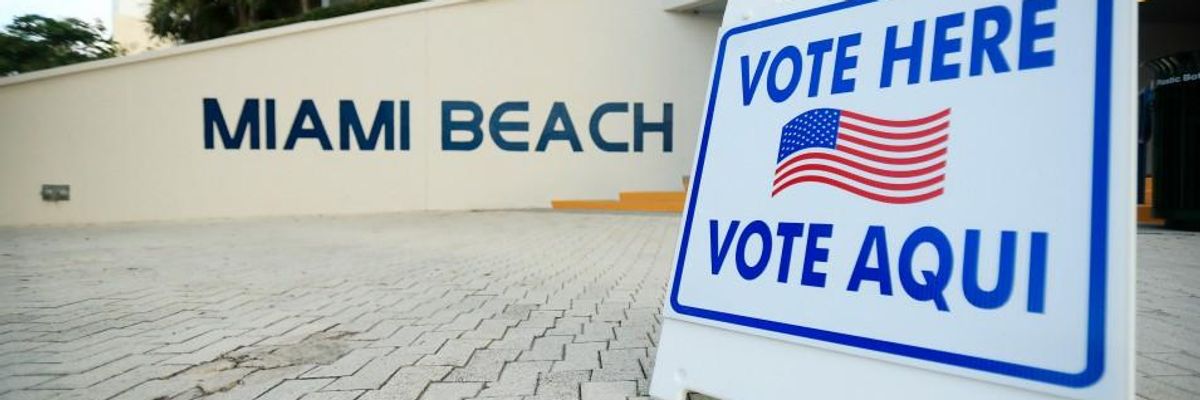The voting rights of hundreds of thousands of former felons in Florida were called into question Thursday after the U.S. Supreme Court allowed a lower court ruling to stand, permitting the state to bar former inmates from voting if they owe court fees or fines.
The decision relates to Amendment 4, a law that overwhelmingly passed in November 2018 via a referendum. Sixty-five percent of Florida voters approved of the amendment, which said former felons can vote in the state after they have completed "all terms of [their] sentence."
"Florida's voters spoke loud and clear when nearly two-thirds of them supported rights restoration at the ballot box in 2018. The Supreme Court stood by as the Eleventh Circuit prevented hundreds of thousands of otherwise eligible voters from participating in Florida's primary election simply because they can't afford to pay fines and fees."
--Paul Smith, Campaign Legal Center
After Republican Gov. Ron DeSantis entered office in 2019, however, he and state GOP lawmakers passed a bill retroactively stating that sentence terms apply to the payment of all fees, in addition to the completion of probation and prison time.
The U.S. Court of Appeals for the 11th Circuit recently halted a judge's order that would have allowed ex-felons to register to vote regardless of outstanding fees, and the Supreme Court declined to overturn that decision.
Justices Sonia Sotomayor, Elena Kagan, and Ruth Bader Ginsburg dissented, with Sotomayor denouncing the unsigned majority opinion.
"This Court's inaction continues a trend of condoning [disenfranchisement]," the judge wrote.
Calling the law a "pay-to-vote scheme," the Campaign Legal Center (CLC), which joined the ACLU and other voting rights groups earlier this month in asking the Supreme Court to rule on the case, called the decision "deeply disappointing."
"Florida's voters spoke loud and clear when nearly two-thirds of them supported rights restoration at the ballot box in 2018," said Paul Smith, vice president of the CLC. "The Supreme Court stood by as the Eleventh Circuit prevented hundreds of thousands of otherwise eligible voters from participating in Florida's primary election simply because they can't afford to pay fines and fees. We look forward to continuing to fight for Florida voters so they can participate in the General Election in November."
The Fines and Fees Justice Center told CNN that fees owed by recently-released former felons are frequently insurmountable, especially as many struggle to find well-paying employment.
The fines and fees "can range from a couple hundred to tens of thousands of dollars," CNN reported. "And in Florida, all the court charges that are unpaid after 90 days are referred to private debt collectors, who are allowed to add up to a 40% surcharge on the unpaid court debt."
On social media, advocates for voting rights condemned the high court's decision, which comes just days before Florida's Monday voter registration deadline ahead of the primary election in August.
"This ruling means if you're a poor person with a felony conviction you're disenfranchised," tweeted Joyce Vance, a U.S. Attorney under the Obama administration. "If you can afford to pay fines you can vote. Setting aside that there's no reason to keep people who've served their sentence from voting forever, this is a poll tax."




